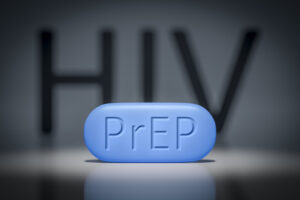
Most HIV tests currently performed in the United States are antibody tests. This testing procedure isolates the antibody to HIV and not the virus itself. Specimens of human serum (blood), plasma, dried blood spots, and mucosal transudate from the mouth can be used to test for HIV antibodies.
A type of test that is becoming more commonly used is a fourth-generation HIV test. These types of tests are only available for testing blood and detect both HIV antibodies and the virus itself (p24 antigen). Fourth-generation tests can detect recent HIV infection earlier than tests that only search for antibodies. Remember, the earlier you know your HIV status, the sooner you can make important decisions about your health.
A finger-stick collection test kit has been developed for home use and is intended for use by persons who wish to anonymously determine their HIV status at home. The manufacturing company uses an authorized laboratory to test the blood specimen for the presence of HIV antibodies. Individuals are required to phone a designated number and input their unique identification number to receive their results.
The oral collection device draws antibodies out of the cheek and gum in oral mucosal transudate. This device is not intended to collect saliva for testing. It is highly accurate, provided sufficient time has passed for antibodies to form and the test is performed correctly.
A rapid test for detecting antibodies to HIV is a screening test that produces very quick results, usually in a matter of minutes. It can detect HIV antibodies through a small droplet of blood from a finger stick, or through venipuncture whole blood, plasma, or oral fluid samples. Results are provided in less than an hour.
